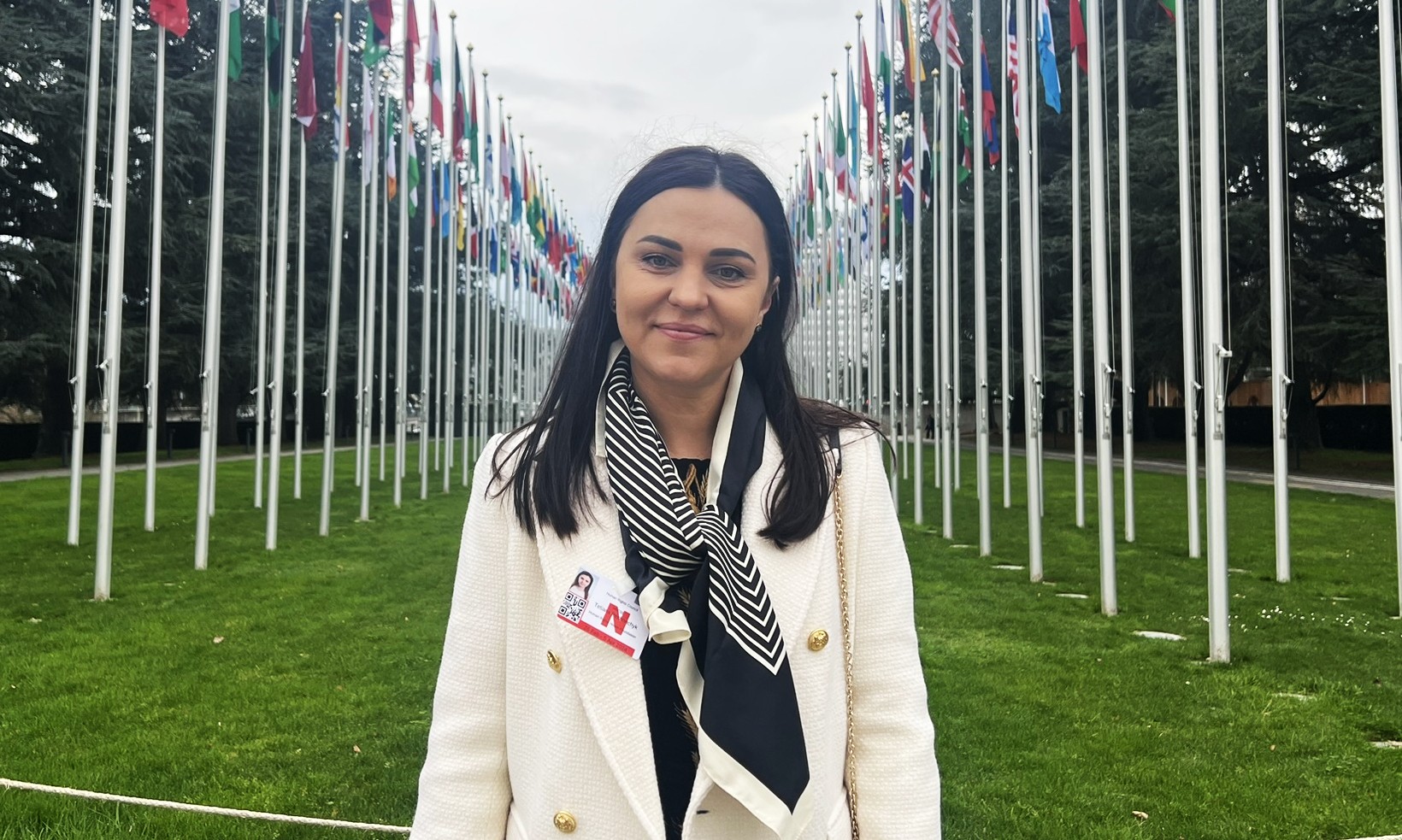All victims of Russian aggression in Ukraine must have the right to reparations – Tetiana Pechonchyk at the UN event
Both the national and international systems of reparations for victims of Russian armed aggression lack a comprehensive approach. This was stated by Tetiana Pechonchyk, Head of the Board of the Human Rights Centre ZMINA, during the side event “Reparations for victims of Russia’s aggression against Ukraine: Victims’ perspectives on challenges and paths forward”, organised by the Minority Rights Group and held on 20 March in Geneva within the framework of the 58th session of the UN Human Rights Council.
 Tetiana Pechonchyk
Tetiana PechonchykTetiana Pechonchyk recalled that an international compensation mechanism was launched under the auspices of the Council of Europe, the first element of which – the Register of Damages – began its work in April last year.
The register accepts applications from victims through the Diia system and will include four dozen different categories for future compensation, some of which are already open for applications: death of a close family member, missing close family member, serious bodily injury, damage or destruction of residential real estate, forced labour or service.
According to Pechonchyk, the main issue is that the Register of Damages only accepts applications from victims of events that occurred after 24 February 2022, i.e. within the framework of the full-scale Russian invasion of Ukraine, thus ignoring the victims of Russian aggression in the previous eight years in Crimea and Donbas, since in 2014.
“This establishes a discriminatory attitude towards victims of Russian aggression and divides them into two sorts – those who deserve compensation and those who do not. This must be amended so that all victims are entitled to reparation for the damage caused by Russia,” the human rights defender said.
However, according to her, a similar approach is still partly maintained at the national level as well.
Thus, in February 2023, Ukraine adopted a mechanism for compensation for damaged or destroyed citizens’ immovable property as a result of Russia’s armed aggression against Ukraine. The relevant law does not provide for compensation to owners of housing destroyed or damaged before 24 February 2022 or located in the occupied territories of Ukraine as of that date. Draft Law No. 11161, adopted by the Parliament on 19 December 2024, which provides for the possibility of receiving compensation for real estate located in the area of hostilities or the TOT of Ukraine, is also limited to the period after 24 February 2022.
Pechonchyk drew attention to the fact that in Ukraine, more than 10 years after the beginning of the Russian armed aggression, the category of victims has not yet been defined by law. Moreover, those who have suffered damage to their lives and health, in particular as a result of war crimes, remain without proper support from the state.
According to her, on 20 November 2024, a law was adopted providing financial assistance to persons who have suffered from sexual violence. In addition, annual assistance of 100,000 UAH is granted to Ukrainian civilians and prisoners of war held by Russia.
“It is important that such support is comprehensive and can also be provided to victims of other crimes as a result of armed aggression against Ukraine,” she said.
Pechonchyk called for the introduction of a comprehensive system of support for victims of the armed aggression against Ukraine, both at the international and national levels.
If you have found a spelling error, please, notify us by selecting that text and pressing Ctrl+Enter.















